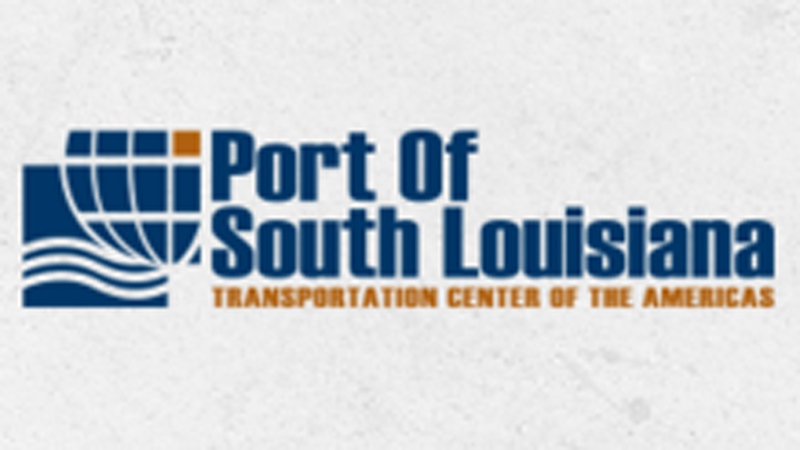Aucoin: Port of South Louisiana pens Op-Ed to urge Congress to use the Harbor Maintenance Tax
Published 12:00 am Wednesday, September 4, 2019
In an opinion editorial published Friday, August 16, 2019 in THE MORNING CONSULT, Port of South Louisiana Executive Director Paul Aucoin outlines the precarious state of the Mississippi River due to record-setting precipitation since April 2018 and urges Congress to act swiftly to use the Harbor Maintenance Tax to keep the Mississippi River’s navigability reliable.
| For the past few weeks and months, much of the nation has experienced record-setting rainfall and, at one point, there were even concerns of levies on the Mississippi River being topped around New Orleans. Thankfully, this did not happen.
In 2019, the Mississippi River Basin was inundated by precipitation, with April 2018 to April 2019 being the wettest 12-month stretch in U.S. history. The National Oceanic and Atmospheric Administration (NOAA) began keeping detailed records of precipitation in 1895, and this 12-month period marked the wettest in at least 124 years. TrendingThe Mississippi River Basin drains 41 percent of the contiguous United States, an area of 1.25 million square miles. This water flows downhill via one of the 250-plus tributaries to the Mississippi River. Counter-intuitively, this unparalleled high water means the river is shallower, at least in parts. This is because the vast amounts of water draining down the Mississippi River deposits millions of cubic yards of silt. According to the Army Corps of Engineers, over twice the normal amount of silt has already been deposited on the bottom of the Mississippi River in 2019. This creates a scenario with low draft in the Southwest Pass of the Mississippi River, a shipping lane where nearly all ships either enter or exit the Gulf of Mexico. A vessel’s draft is the distance between the bottom of the ship and the waterline on the ship or the distance below water. Hence, when there are low drafts, ships have to be lighter to avoid getting stuck on the bottom. On the Mississippi River, every foot of draft a ship loses equates to leaving behind $1 million dollars of cargo. Today, with our high water, ships passing through the Southwest Pass on the River are limited to 42 feet, not the 47 feet that can be accomplished in normal times. These ships are leaving behind about $5 million dollars in cargo. Over 4,000 ships a year pass through the Port of South Louisiana alone. If the Mississippi River is not properly maintained, exports from America — commodity crops like corn, soybeans and wheat — could become uncompetitive in a global marketplace. If the world thinks they could get their grains cheaper and more reliably in South America, they will. Just how important is the Mississippi River to our nation’s economy? Consider that according to the federal government, the basin accounts for “92% of the nation’s agricultural exports, 78% of the world’s exports in feed grains and soybeans, and most of the livestock and hogs produced nationally. Sixty percent of all grain exported from the US is shipped on the Mississippi River.” In fact, a grain silo that Archer Daniels Midland’s leases from the Port of South Louisiana is the largest soybean elevator in the world. TrendingTo deal with this high water, it is absolutely critical that key navigational points on the Mississippi River are dredged. Dredging is the process of removing silt from the bottom with special vessels and equipment designed to move large amounts of sediment. Adequate dredging is critical to keep shipping lanes open, but it is costly and more federal funding is needed to get the job done. Going forward, Congress must use all of the tax revenues collected from vessels entering the U.S. — known as the Harbor Maintenance Tax (HMT) — for port maintenance. For decades, America’s largest ports were deeply divided on how to fairly distribute these tax revenues. But last year, the ports came together and developed a compromise that protected the interests of ports large and small, and ensured equity for the ports that collect the largest percentage of the HMT. Congress must use this framework to draft and pass legislation that will help ensure the Mississippi River, and all of this nation’s ports, are properly maintained. Finally, to give an idea of just how bad the situation is on the Mississippi River, in an average year the Army Corps removes 19 million cubic yards (mcy) of material to allow ships to access Southwest Pass. In 2019, more than 39 mcy has been removed. By the end of the year, the Corps may have to remove nearly 50 mcy. Hopefully, the rains pummeling the middle of the country will soon subside and we can return to a more normal weather pattern. In the meantime, I urge the Congress to fix the HMT and ensure the Mississippi River remains fully operational. |
Paul Aucoin is executive director of the Port of South Louisiana. For more information, call 985-652-9278.







